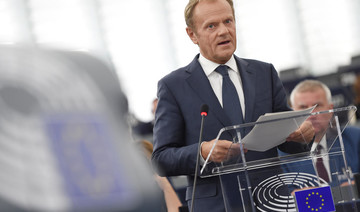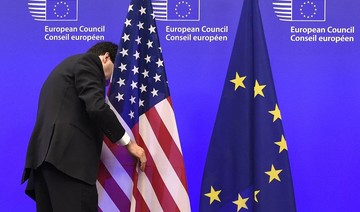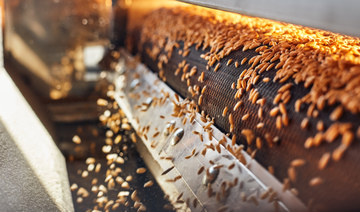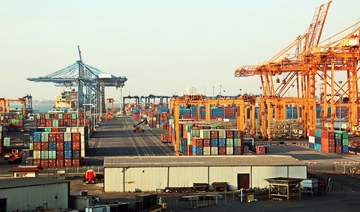The EU and Japan signed a sweeping free trade deal Tuesday that officials called a “clear message” against protectionism, as Washington imposes controversial tariffs and threatens a trade war.
The deal signed in Tokyo by the EU’s top officials and Japan’s Prime Minister Shinzo Abe is the biggest ever negotiated by the EU and creates a free trade zone covering nearly a third of the world’s GDP.
“We are sending a clear message that we stand together against protectionism,” EU Council President Donald Tusk said.
“Together we are making — by signing this agreement — a statement about free and fair trade, we are showing that we are stronger and better off when we work together,” added Commission head Jean-Claude Juncker.
The huge deal was signed as President Donald Trump unsettles allies and provokes rivals with his aggressive “America First” trade policy.
Both the EU and Japan have been hit with new US tariffs despite their longstanding alliances with Washington.
Juncker said the deal sent a message that “trade is about more than tariffs and barriers, it is about values.”
“There is no protection in protectionism,” he said.
Abe, standing alongside the two EU officials, said the agreement, “shows the world the unshaken political will of Japan and the EU to lead the world as the champions of free trade at a time when protectionism has spread.”
Japan, EU sign landmark trade deal
Japan, EU sign landmark trade deal
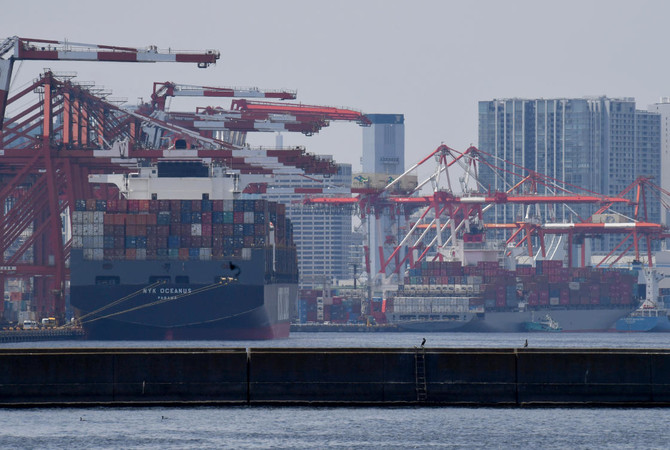
- Both sides are heralding the deal, which covers a third of the global economy and more than 600 million people
- Besides the latest deal with the EU, Japan is working on other trade agreements, including a far-reaching trans-Pacific deal
NEOM subsidiary Topian boosts Saudi food security drive with new Tadco partnership
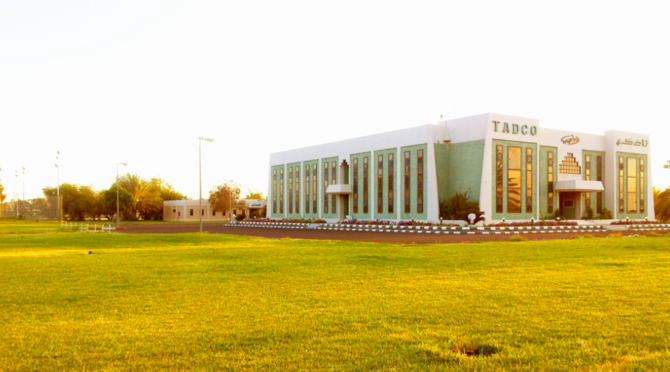
RIYADH: Saudi Arabia’s food security drive is set to receive a boost as NEOM subsidiary Topian has partnered with Tabuk Agricultural Development Co., also known as Tadco, to innovate fruit and vegetable production.
A memorandum of understanding aimed at leveraging advanced agricultural technologies and practices to enhance domestic food production was signed. The agreement includes setting up a hydroponic greenhouse facility at the company’s site in Tabuk, located in northwestern Saudi Arabia.
Hydroponics is the method of cultivating plants without soil and utilizing minimal water resources.
Hydroponic gardens, designed for space efficiency, can grow fruits, vegetables, and flowers in half the time of traditional agriculture, while using 90 percent less water. This will support the Kingdom’s efforts toward sustainable food production practices.
Under the terms of the MoU, Topian will bring its expertise to the table, handling key responsibilities including the design, installation, and operation of the hydroponic greenhouse facility.
Additionally, the NEOM subsidiary will oversee all aspects of greenhouse management, from production planning to workforce training and customer relations, as stated in a release on the Saudi Stock Exchange.
Saudi Arabia issues over 37k certificates of origin in March
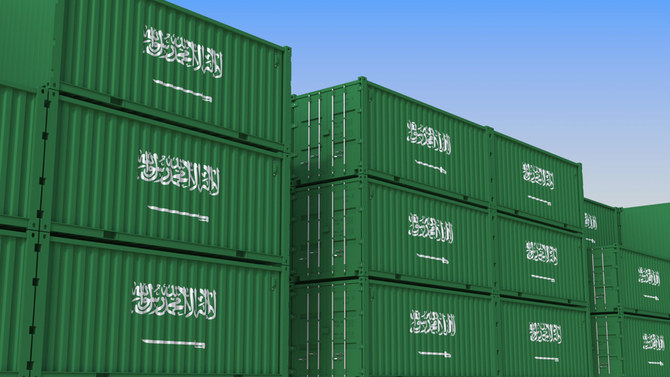
RIYADH: Saudi exporters were issued 37,188 certificates of origin in March by the Ministry of Industry and Mineral Resources, marking an annual increase of 0.5 percent.
The document confirms that the products are of national origin or have acquired that status. It is part of the ministry’s effort to support and facilitate the service for exporters in various sectors.
This initiative is part of the Kingdom’s goal under the Vision 2030 economic transformation plan to increase the share of non-oil exports to Saudi Arabia’s gross domestic product from 16 percent to 50 percent by the decade’s end.
Spanish investments in Saudi Arabia exceed $3bn, boosting bilateral relations and vital sectors
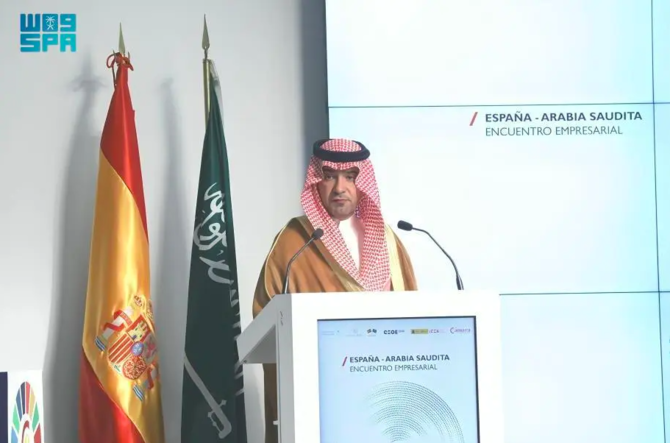
RIYADH: Spanish investments in Saudi Arabia have surpassed $3 billion in the last 10 years, with bilateral relations contributing to the development of vital sectors, according to a top official.
The Kingdom’s Minister of Municipal, Rural Affairs, and Housing, Majed Al-Hogail, witnessed the start of the Saudi-Spanish Business Forum on April 17, which was organized by the Council of Saudi Chambers and the Saudi-Spanish Business Council.
Al-Hogail highlighted in his opening address that the bilateral relations between the Kingdom and the European country over the last 70 years have resulted in favorable outcomes, fostering development, investment, and advancements in various sectors such as construction, civil engineering, finance, energy, and water desalination, as reported by the Saudi Press Agency.
He explained that bilateral investments are booming, with Spanish finding into the Kingdom surpassing $3 billion in the last decade, 40 percent of which is in real estate.
The forum, held in Madrid, highlighted Saudi-Spanish financial opportunities and enhancing partnerships in areas of construction technologies, smart cities, and urban planning.
The minister underscored the forum’s role in exploring investment prospects and enhancing cooperation and effective partnerships, particularly in municipal and housing sectors.
He emphasized that Saudi Arabia and Spain are experiencing rapid developmental advancements, making investment and trade exchanges increasingly attractive.
Al-Hogail stressed the importance of ongoing cooperation and expertise exchange in this crucial sector, stating that the Kingdom welcomes collaboration with successful international partners and leveraging their expertise.
He also announced the signing of a real estate development agreement with a Spanish development company to implement residential units within integrated communities and suburbs, aiming to raise the homeownership rate to 70 percent by 2030.
He expressed the ministry’s eagerness to strengthen partnerships with developers and investors in the construction, roads, recycling, engineering, and consulting sectors.
Following the forum, attended by Princess Haifa bint Abdulaziz Al-Mogrin, the ambassador to Spain, and Khalid Al-Hogail, president of the Saudi-Spanish Business Council, the minister convened with Teresa Ribera, Spain’s deputy prime minister and minister of ecological transition and demographic challenge.
They discussed cooperation in urban development, urbanization, and the utilization of artificial intelligence technology in sustainable city building, as reported by SPA.
Al-Hogail highlighted Saudi Arabia’s efforts to improve standards in municipal and housing undertakings, including the “Bahja” project, which aims to enhance the quality of life in Saudi cities, and the “Green Suburbs” initiative, which strives to plant more than 1.3 million trees in 50 residential areas.
Al-Hogail also met with the President of the Spanish Association of Infrastructure Contractors and Concessionaires, Julian Nunez, to review prominent investment opportunities in the Saudi real estate sector.
During a three-day visit prior to the forum, minister Al-Hogail met with executives from leading Spanish companies to explore collaboration opportunities.
The tour is part of the Kingdom’s broader initiative to foster international partnerships that enhance its urban and infrastructure capabilities, SPA reported.
Oil Updates – crude stabilizes after sharp drop on demand concerns, easing of Middle East tension
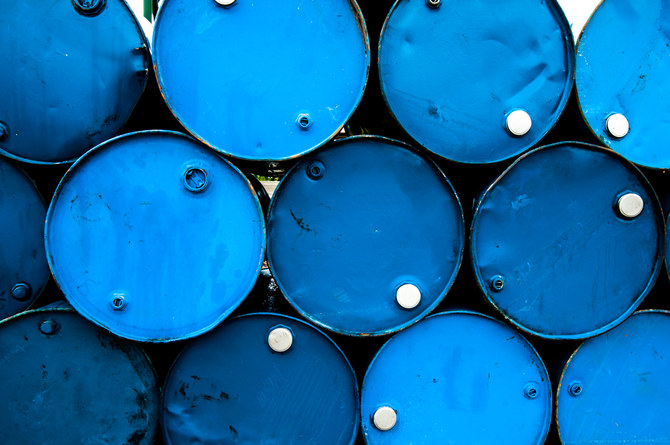
NEW DELHI: Oil prices were little changed after a 3 percent drop in the previous session as the market remains concerned about demand this year and on signs that a wider conflict in the key Middle East producing region could be avoided, according to Reuters.
Brent futures were up 13 cents, or 0.15 percent, at $87.42 a barrel, while US West Texas Intermediate crude futures traded 6 cents higher, up 0.07 percent, at $82.75 a barrel at 9:36 a.m. Saudi time.
The two benchmarks slid 3 percent in the previous session on signs that fuel demand this year is lower than expected amid flagging economic growth in China and as oil inventories in the US, the world’s biggest crude consumer, rose.
Analysts at JP Morgan highlighted in a note late on Tuesday that worldwide oil consumption so far in April has been 200,000 barrels per day below its forecast, averaging 101 million bpd. From the start of the year, demand has risen by 1.7 million bpd, down from its forecast in November of 2 million bpd.
At the same time, investors are discounting the chance that Israel will strongly retaliate against Iran’s missile and drone attack on April 13, which was prompted by Israel’s alleged killing of Iranian military leaders at a Syrian diplomatic site on April 1.
Iran is the third-largest producer in the Organization of the Petroleum Exporting Countries, according to Reuters data, and an easing of its conflict with Israel would reduce the potential for supply disruptions in the Middle East.
“Brent is now back to levels before the April 1 attack on the Iranian consulate, suggesting that the latest bout of risk premium from heightened Israel-Iran tensions has eroded,” said Vandana Hari, founder of oil market analysis provider Vanda Insights.
Surging US crude inventories also kept a lid on prices. Oil inventories rose by 2.7 million barrels to 460 million barrels in the week ending April 12, the Energy Information Administration said, nearly double analysts’ expectations in a Reuters poll for a 1.4 million-barrel build.
Stockpiles built as refinery utilization declined at a time when processing typically rises ahead of summer driving demand in the US
Gasoline stocks fell by 1.2 million barrels in the week to 227.4 million barrels, the EIA said.
Distillate stockpiles, which include diesel and heating oil, fell by 2.8 million barrels to 115 million barrels, versus expectations for a 300,000-barrel drop, the EIA data showed.
“A bearish EIA inventory report appears to have been the perfect opportunity for investors to lock in profits after the recent gains,” Daniel Hynes, the senior commodity strategist at ANZ, said in a note on Thursday.
Saudi tourism fund signs MoU for development of resorts in Kingdom
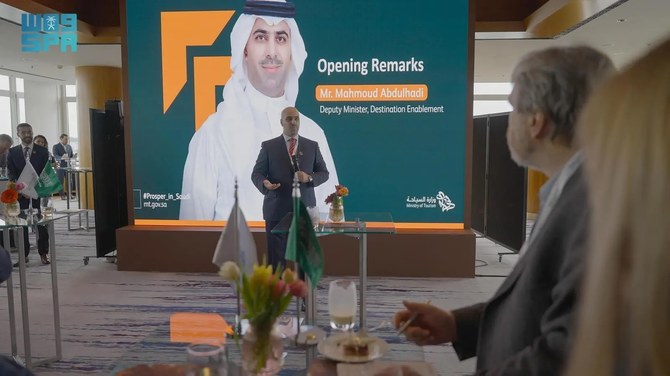
RIYADH: Saudi Arabia is set to witness the development of new luxury resorts as the Tourism Development Fund signed a memorandum of understanding with Karisma Hotels and Resorts International, the Saudi Press Agency reported.
The signing took place at the International Hospitality Investment Forum in Berlin on Wednesday. The MoU seeks to explore opportunities for developing resorts and enhancing new areas of the tourism and hospitality sector in the Kingdom.
The agreement outlines a roadmap to determining a methodology for investing and providing financial and non-financial support to a vibrant ecosystem of investors, clients, and partners.
“The Tourism Development Fund is unlocking a great potential with Karisma Hotels and Resorts as we join forces to explore the feasibility of funding and supportive innovative projects that will significantly contribute to the growth of the tourism sector,” SPA quoted TDF CEO Qusai Al-Fakhri as saying.
The fund aims to connect the world with opportunities in the Kingdom’s fast-growing tourism sector. It offers financial and non-financial support to international and local investors.
“We are proud to announce the company’s significant entrance into Saudi Arabia with multiple hotel developments throughout the Kingdom in collaboration with our partners and local developers. Karisma will introduce first-of-its-kind experiential leisure hotels in partnership with worldwide acclaimed brands, bringing a new offering of leisure vacations to the Kingdom,” Esteban Velasquez, CEO of Karisma Hotels and Resorts, said.
Saudi Arabia’s tourism sector has revised its 2030 target to 150 million visitors, up from the initial 100 million.
The tourism sector has become important to the national economy, as spending on tourism by domestic and international tourists exceeded SR250 billion ($66.7 billion) in 2023. The sector is set to contribute 10 percent to the non-oil gross domestic product and create 1 million job opportunities by 2030. This spending represented more than 4 percent of the Kingdom’s GDP and 7 percent of the non-oil GDP, highlighting the significance of the tourism sector to the Kingdom’s economy.
During a panel discussion, Mahmoud Abdulhadi, deputy minister of investment attraction, underscored the Kingdom’s potential opportunities for both international and local businesses to invest in the tourism industry.
He noted that the Hospitality Investment Enablers initiative, announced by the Ministry of Tourism within the Investment Enablers Program, is in line with Vision 2030's strategic goals
The top official said the initiative aims to increase and diversify tourism offerings, enhance the capacity of tourism hospitality facilities in tourist destinations, and attract private investments in the hospitality sector.


